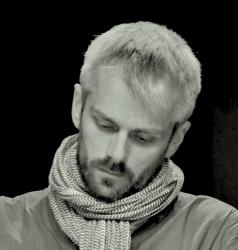
Iceland remains at the top of the Freedom on the Internet index in 2014, according to the a report collected annually by the US think tank Freedom House. This year’s report holds that Iceland “has a vibrant digital sphere” and that access to information and online communication in the country “is free from government interference”.
Iceland also has the highest percentage of households with internet access in Europe, at 97%, and the widest spread of social networks, used by 82% of the population. In terms of the technical side of access, the report makes special mention of Seltjarnarnes, a municipality adjacent to Reykjavík, which became “the first municipality in the world where every citizen has access to fiber-optic internet service”.
Access rights
The report states that “self-censorship is not a widespread problem in Icelandic online media” and that there are very few instances of government or partisan manipulation of online content. There are, it says, no restrictions on anonymous communication. And there have been “no physical attacks against bloggers or online journalists in Iceland”.
The report notes that after the implementation of the 2011 media law, journalists can no longer be held responsible for “potentially libelous quotes from sources”. According to the report, there has been a decrease in libel cases since.
According to the report, Iceland’s public institutions have, in recent years, “started a migration process from proprietary software to free and open software”.
Access wrongs
On a less positive note, the report mentions the stalled new constitution, drafted after the 2008 economic crash. After mentioning that the “existing constitution is an almost exact copy of the Danish constitutional text”, the report describes the process of drafting a new one, as implemented over the last few years: “A 25-member council consisting of ordinary residents helped draft a new constitution and worked through sixteen versions in four months based on 16,000 comments from Icelandic citizens using social media platforms such as Facebook, Twitter and Youtube. A majority of the population voted for the draft constitution in a national referendum on October 20, 2012”. The process was abandoned after the 2013 change in government.
The report also makes mention of the Icelandic Modern Media Initiative (IMMI), “which aims to transform Iceland into a global free-speech safe haven”, saying that it is progressing very slowly, also “since the change of government in 2013”.
Furthermore, the report notes the concerns of Birgitta Jónsdóttir and other free speech activists over Iceland’s participation in “a greater international surveillance network that cooperates with the activities of the “Five Eyes alliance”—the intelligence operations agreement between the United States, the United Kingdom, Austria, Canada, and New Zealand.”
Global context
According to the report’s summary, internet freedom around the world has been in decline for four years. Online censorship, monitoring practices, regulatory controls, arrests of social-media users and threats facing women and LGBTI communities are cited as among the main reasons for decline.
Perhaps not surprisingly, the reports find Iran, Syria and China as “the world’s worst abusers of internet freedom overall.” The report cites the case of Uighur academic and webmaster Ilham Tohti, who was sentenced to life imprisonment for alleged separatist views: “the harshest punishment for online dissent in years”, according to Freedom House.
The highest jumper between years, according to the report, was India “where authorities relaxed restrictions on access and content … to help quell rioting in northeastern states.” In the opposite direction, Russia’s score has declined significantly, by eleven points, over the last five years, and Turkey’s by 13 points.
The report finds some states “using the revelations of widespread surveillance by the U.S. National Security Agency (NSA) as an excuse to augment their own monitoring capabilities, frequently with little or no oversight, and often aimed at the political opposition and human rights activists.”
It further says that growing restrictions at the national level change the global internet into a “fragmented mosaic” where both rules and accessible content vary between countries. “Meanwhile, physical violence against internet users appears to have decreased in scope.” The numbers of countries where critics and campaigners were subjected to physical attacks fell from 26 in 2013 to 22 this year.
According to the institute’s own description of its approach, the index focuses in particular on “the transmission and exchange of news and other politically relevant communications, as well as the protection of users’ rights to privacy and freedom from both legal and extralegal repercussions arising from their online activities.”
Approach and methods
The methodology is said to examine the level of internet freedom through 21 questions in three categories: obstacles to access, limits on content and violations of user rights. The report advisor for Iceland was the Danish researcher Caroline Nellemann.
Freedom House was established in 1941, and is based in Washington, D.C. It is a nonprofit, non-governmental organization. Describing itself as a “clear voice for democracy and freedom around the world”, it has repeatedly come under criticism for serving US interests. Its executive director, David J. Kramer, has served as a director at the US State Department.
Read the full report here.
Buy subscriptions, t-shirts and more from our shop right here!















